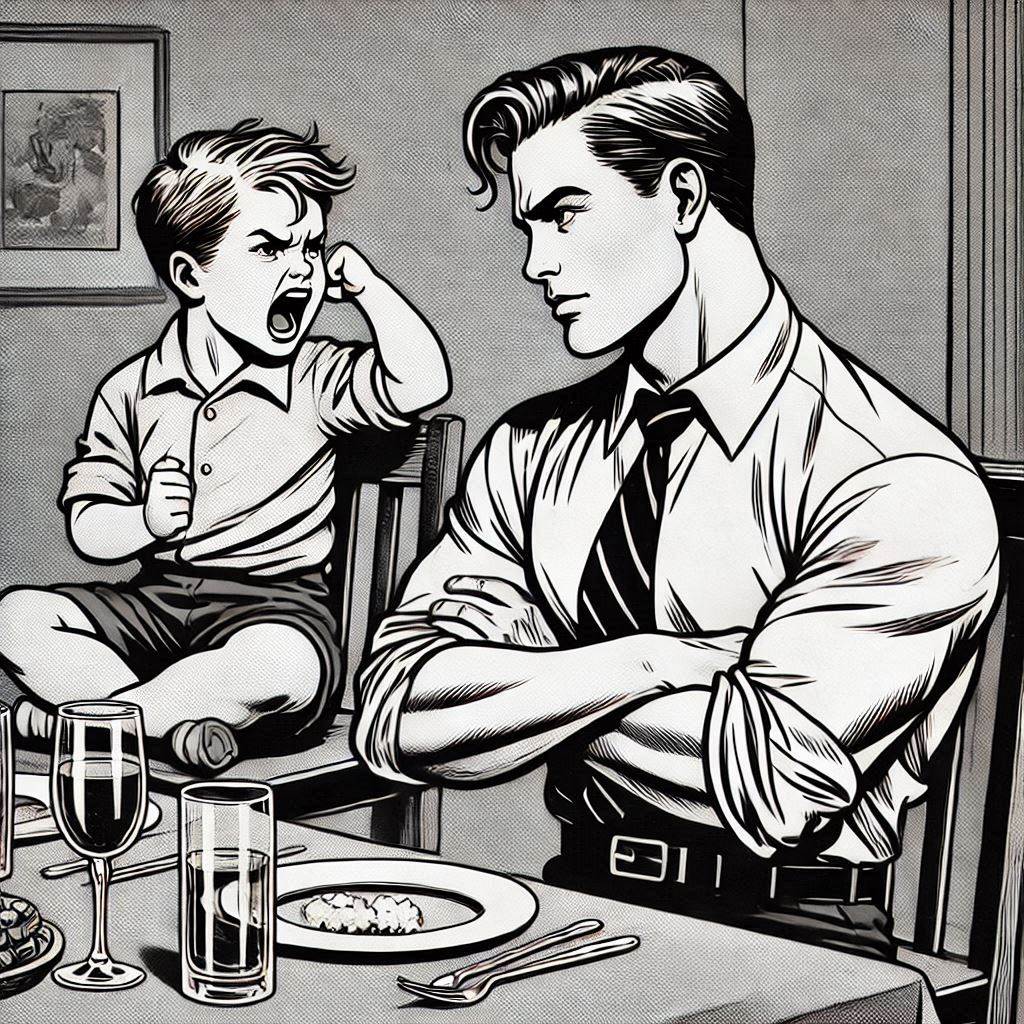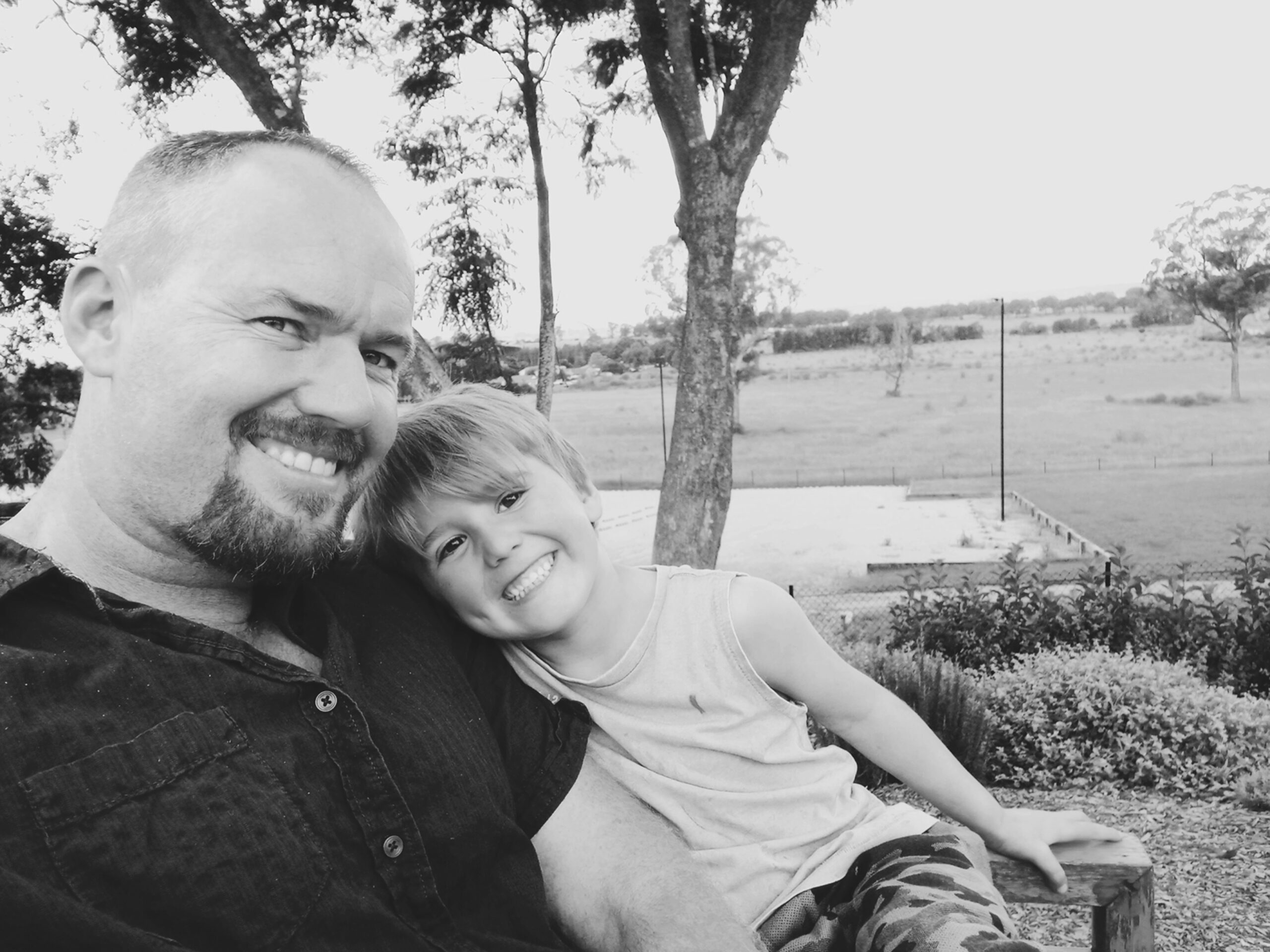This is a demo store for testing purposes — no orders shall be fulfilled. Dismiss
Skip to contentLET US AS FATHERS, BE WORTHY OF OUR SONS AND DAUGHTERS

Fatherhood is a storm. There are moments of calm, where the sun shines bright and you feel like you’re sailing effortlessly across clear waters. And then there are those times when the skies darken, the winds howl, and your children’s emotions hit you like waves crashing against the hull. How we respond in those moments defines us as fathers.
Becoming an IRON FATHER means standing strong as a pillar of calm and reason, even when the storm rages.
Let’s face it—kids can test us. They push boundaries, speak out of turn, and sometimes unleash their frustrations in ways that leave us questioning our own patience and sanity. But here’s the truth: our children are still learning how to navigate the complex world of emotions. Many of us didn’t learn those tools as kids, either. Schools don’t teach emotional intelligence, and let’s be honest, life often leaves parents too stretched to address it properly at home. But that’s exactly where we, as fathers, come in.
The easy route is to react—to yell, punish, or snap back with sarcasm. It’s quick, it’s immediate, and it might feel like it works in the moment. But those responses don’t teach lessons; they sow seeds of fear, resentment, and confusion. Yelling may silence your child, but it won’t make them feel understood. Sarcasm might cut short the argument, but it won’t help them process their emotions.
As fathers, our job isn’t just to correct behavior; it’s to teach and guide, and that starts with self-control.
When your child is upset, think of it as them standing in their own storm. They’re overwhelmed, struggling to process feelings they don’t fully understand. Sometimes, they just need to vent, to let the pressure out in the presence of someone who won’t judge or retaliate. That someone needs to be you. By staying calm, you’re modeling the emotional control they need to learn. You’re showing them what it looks like to weather the storm without being consumed by it.
This isn’t about being a pushover or ignoring bad behavior. It’s about responding with reason instead of reaction. When your child lashes out, take a breath. Pause. Ask yourself: what’s really going on here? Are they tired, hungry, or overwhelmed? Have they had a hard day? Or maybe they’ve never been taught how to handle this particular emotion. The answer to those questions can guide your response.
For example, instead of yelling, try saying, “I can see you’re upset. Can you help me understand what’s going on?” Instead of sarcasm, try, “It seems like something’s bothering you. Let’s talk about it.” These approaches don’t just defuse the immediate situation—they teach your child that their emotions are valid and that there are constructive ways to express them.
Building emotional intelligence in our kids starts with building it in ourselves. The gym teaches us this principle well. Under the barbell, you learn to control your breathing, focus your mind, and push through discomfort with purpose. That same discipline applies to parenting. When emotions run high, your ability to stay grounded becomes the anchor your family needs.
Your calm presence teaches your children resilience. It shows them that no matter how turbulent their feelings, they can find their way back to balance. It helps them trust that you are a safe space—someone who will listen without judgment, someone who will guide without shaming. Over time, they’ll begin to internalize these lessons, and you’ll see them starting to manage their emotions with the same calm and reason you’ve shown them.
“The true measure of a Father is not found in the absence of storms, but in his ability to stand firm, react calmly, and guide his family through the tempest.” – Járn Ulfstaður
The world won’t teach our children these skills. It’s up to us as fathers to fill that gap. It’s not always easy, and you won’t get it right every time. But the effort matters. Becoming an IRON FATHER isn’t about perfection—it’s about persistence. It’s about showing up, even when it’s hard, and being the steady hand that helps your children find their way through the storm.
So, the next time your child’s emotions flare, remember this: you’re not just their father. You’re their example. Be the pillar of reason. Be the calm in their storm. Teach them, through your actions, how to weather life’s challenges with strength and grace. That’s what it means to be an IRON FATHER.

I am a father of 5 wild and awesome kids. and the creator of the IRON FATHER. This is a blog about self reflection and fatherhood, and striving to become better. From one father to another, we can all seek improvment and forge ourselves into the legend that our kids deserve.

















IRON FATHER is a brand dedicated to empowering fathers to embrace their roles with strength, resilience, and active engagement in their children’s lives.
“Foundations are laid quietly. Those who are meant to find them will.”
© All Rights Reserved IRON FATHER 2024.